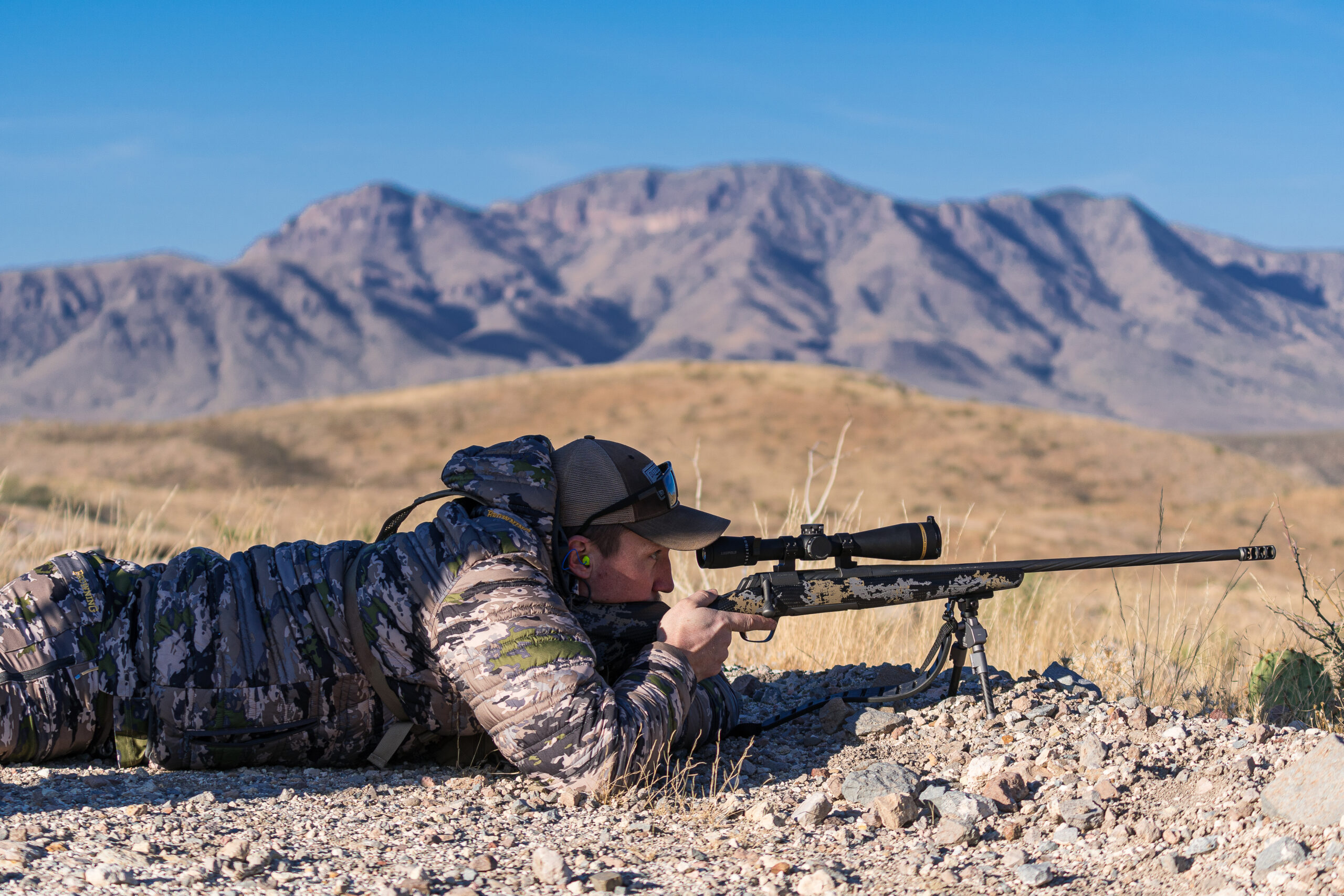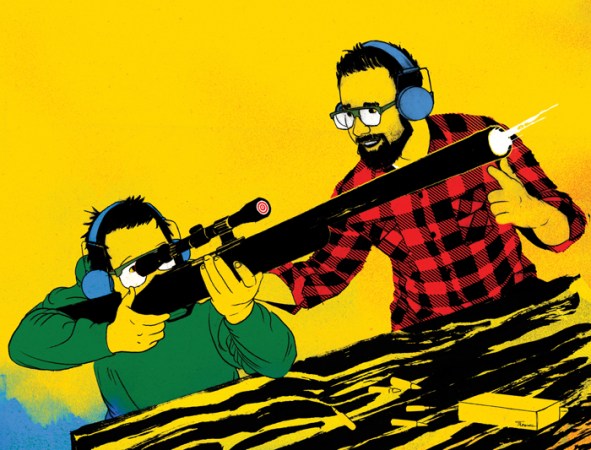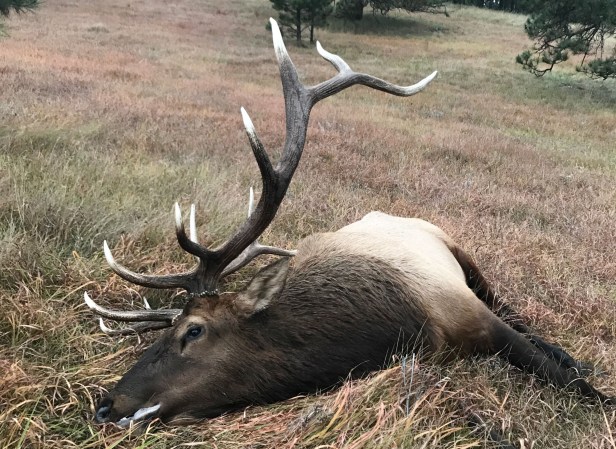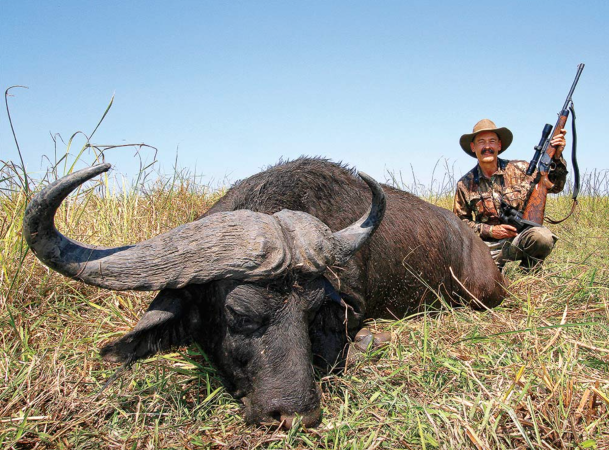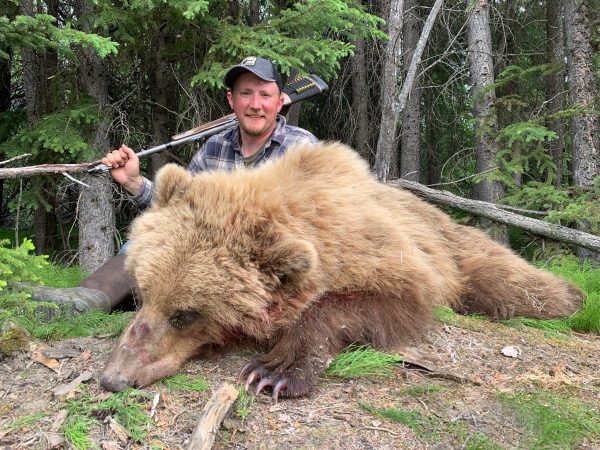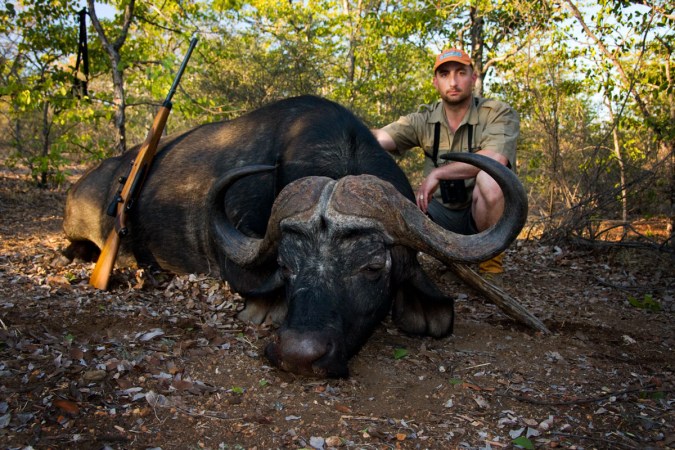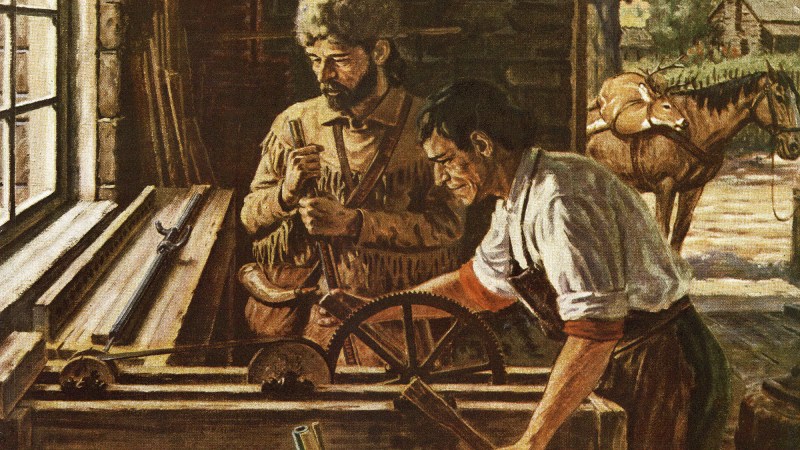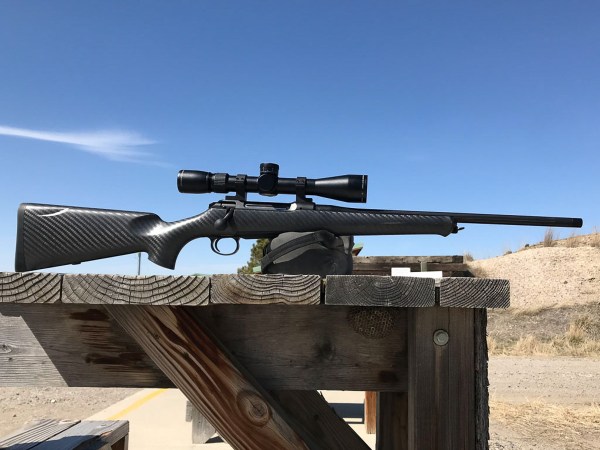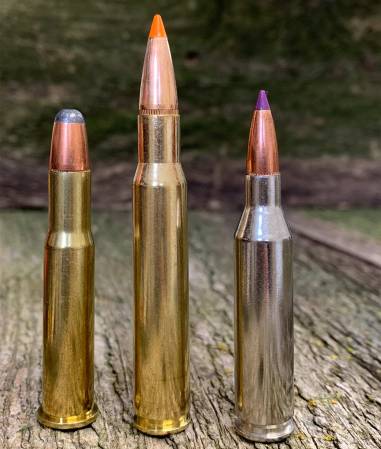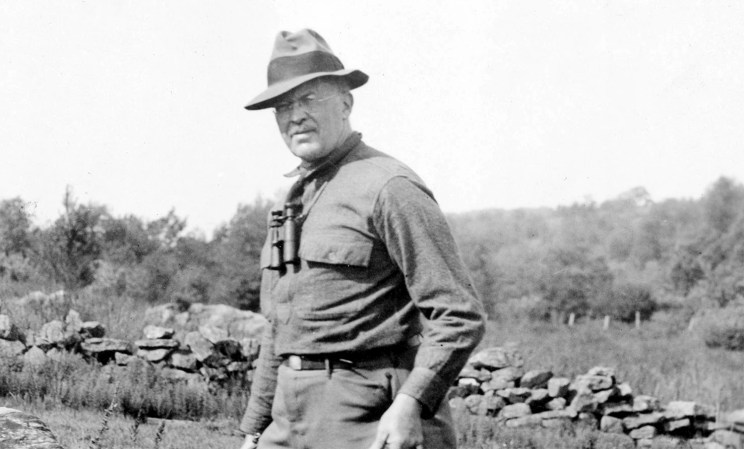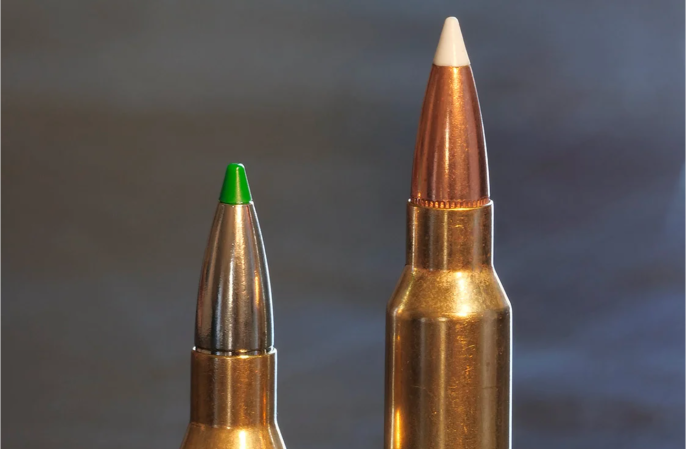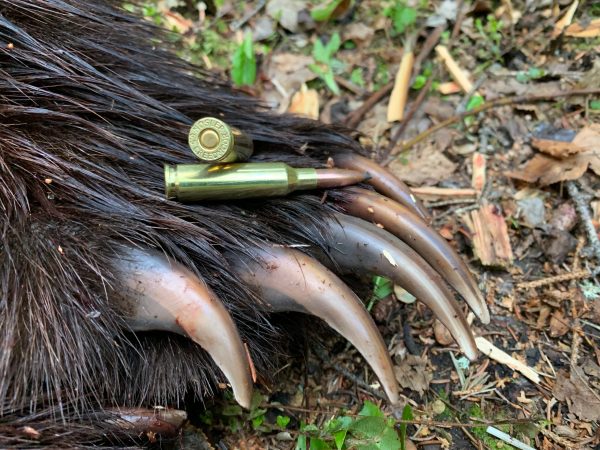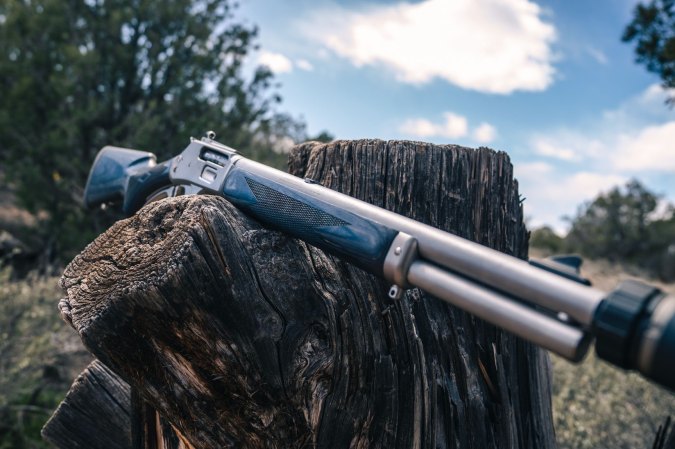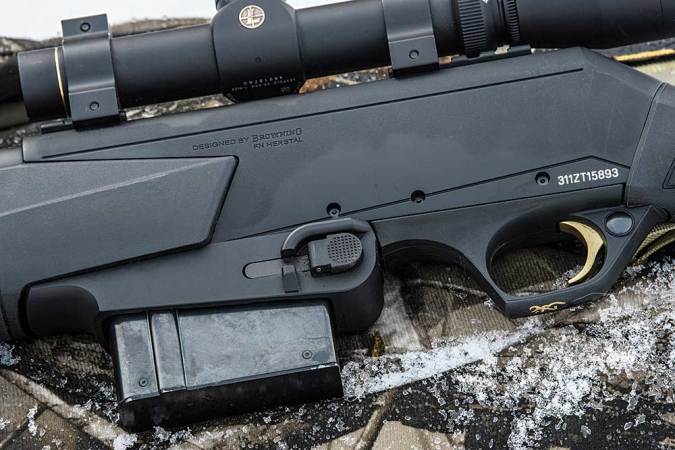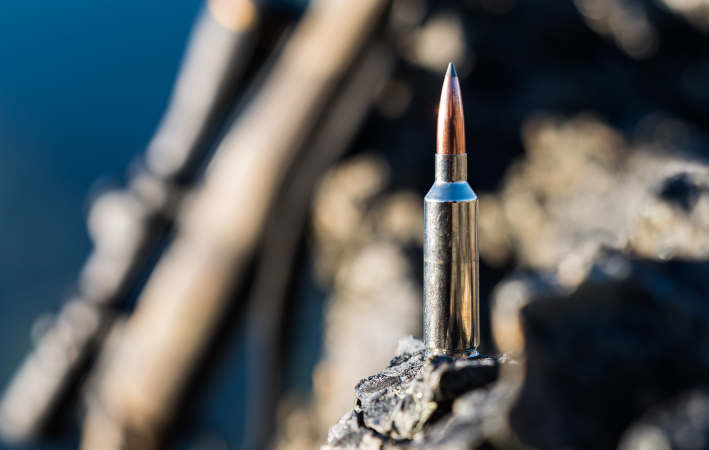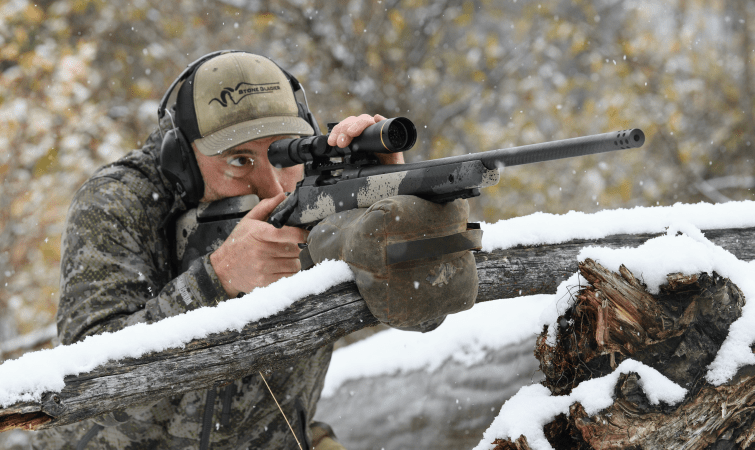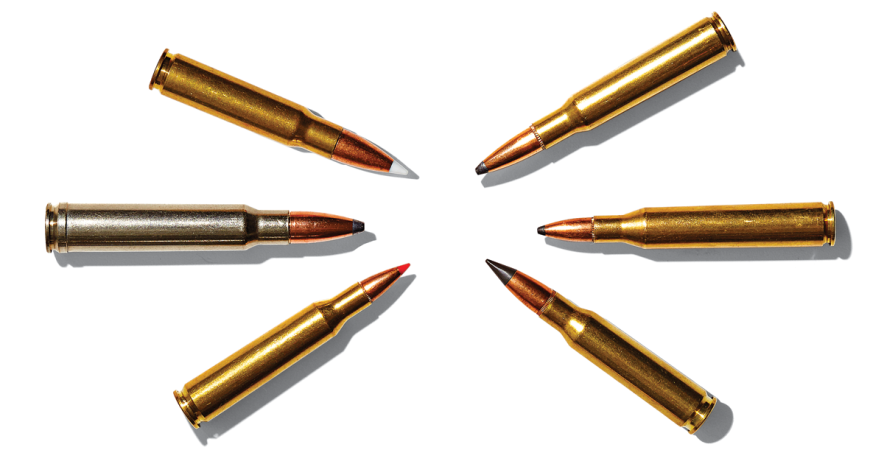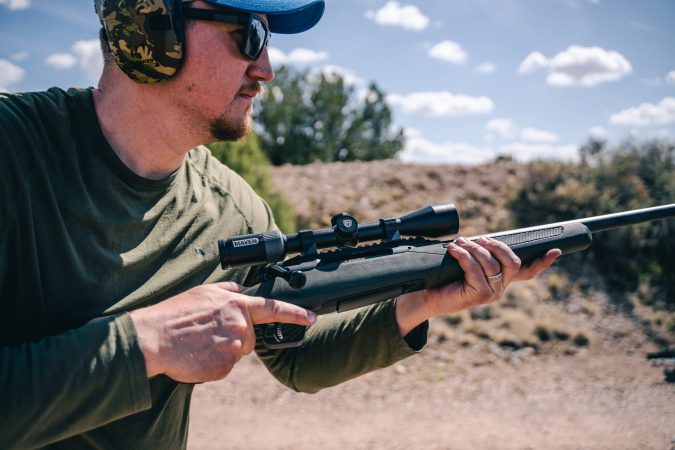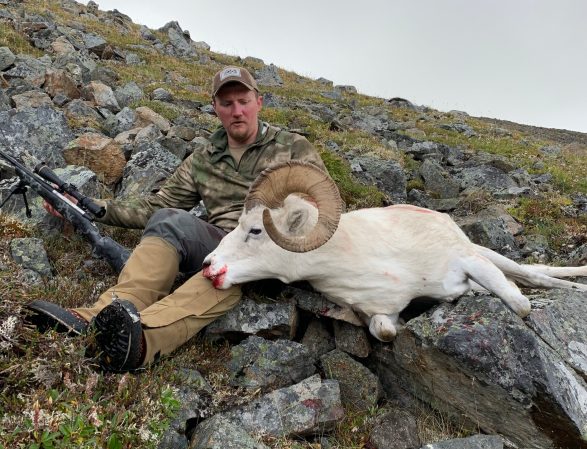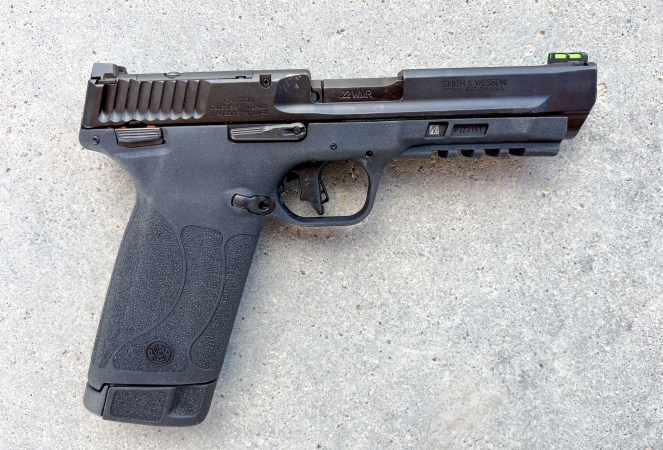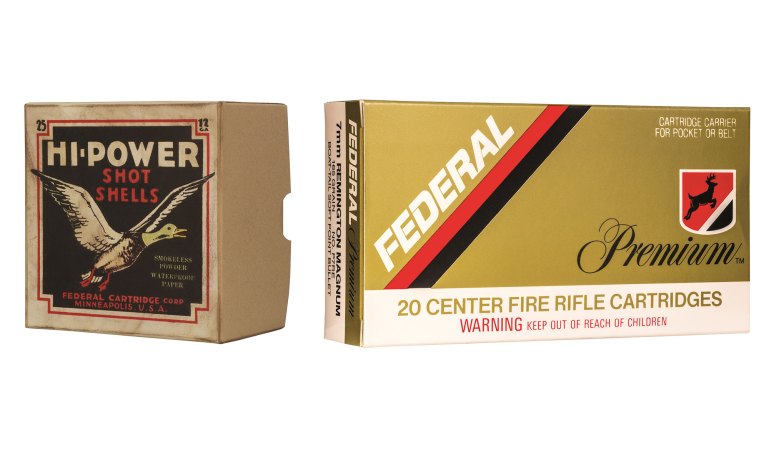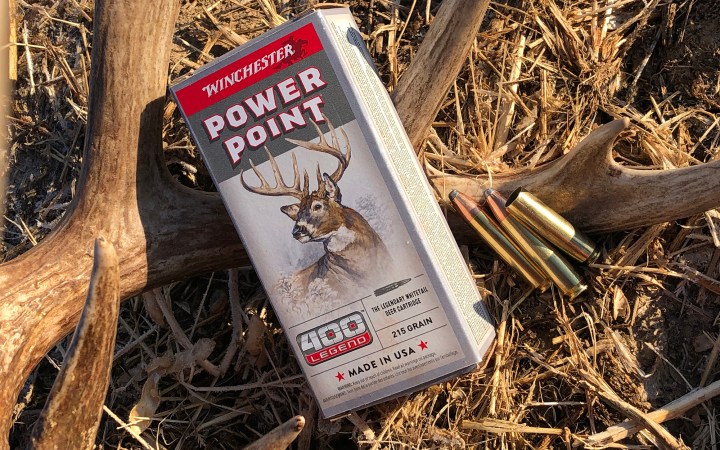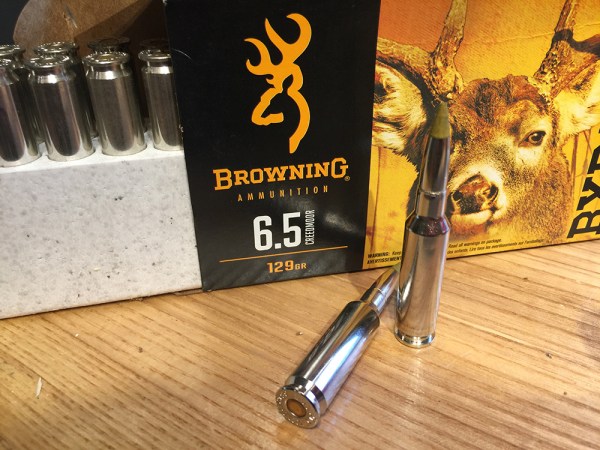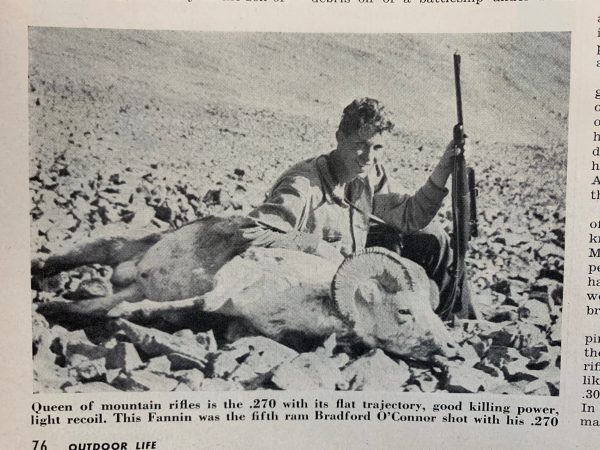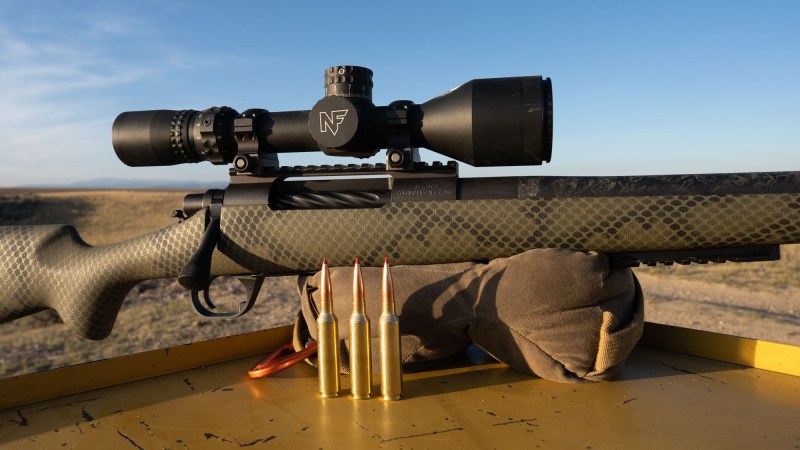We may earn revenue from the products available on this page and participate in affiliate programs. Learn More ›
“Obnoxious,” I can’t help but think to myself. I can feel the concussion reverberating through the shooting range, even from several benches down. The shooter is doing nothing wrong, really, he’s just banging away with a muzzle brake on his rifle. I have a similar gut reaction when someone fires up an old 2-stroke outboard on a quiet fishing hole (once you’ve become accustomed to a 4-stroke). I’m not passing judgement on the muzzle brake shooter (I have used brakes plenty) but I still mutter a few choice words to myself nearly every time I encounter another shooter with a brake at the range or in the field.
Muzzle brakes, although not new at all, have seemingly become much more popular in recent years. Newer magnum cartridges like the Noslers, the 300 PRC, and several of the .338 magnums have been drivers of the trend. Some of these cartridges would be horrendous to shoot without a brake, so having them come standard on these rifles is perfectly logical. I believe that another factor of muzzle brake popularity is tied to their use in precision rifle competition. They are often used not to prevent painful recoil, but to reduce movement of the rifle upon firing, which allows shooters to more easily spot their impacts and make adjustments if needed. It doesn’t matter how macho a person is, heavy-recoiling rifles can lead to accuracy issues for a shooter, and a muzzle brake unequivocally aids in accurate, consistent shooting.
It seems that muzzle brakes are popping up more and more frequently as standard kit on production hunting rifles chambered for standard cartridges. We would be expect this on something like a 33 Nosler or .338 Lapua Mag., but they’re even showing up on rifles in powder-puff kicking cartridges like 7mm-08, 6.5 Creedmoor, and .308—even many .223s. Fortunately, most include an optional thread protector to install once you remove the brake, but many folks don’t do this.
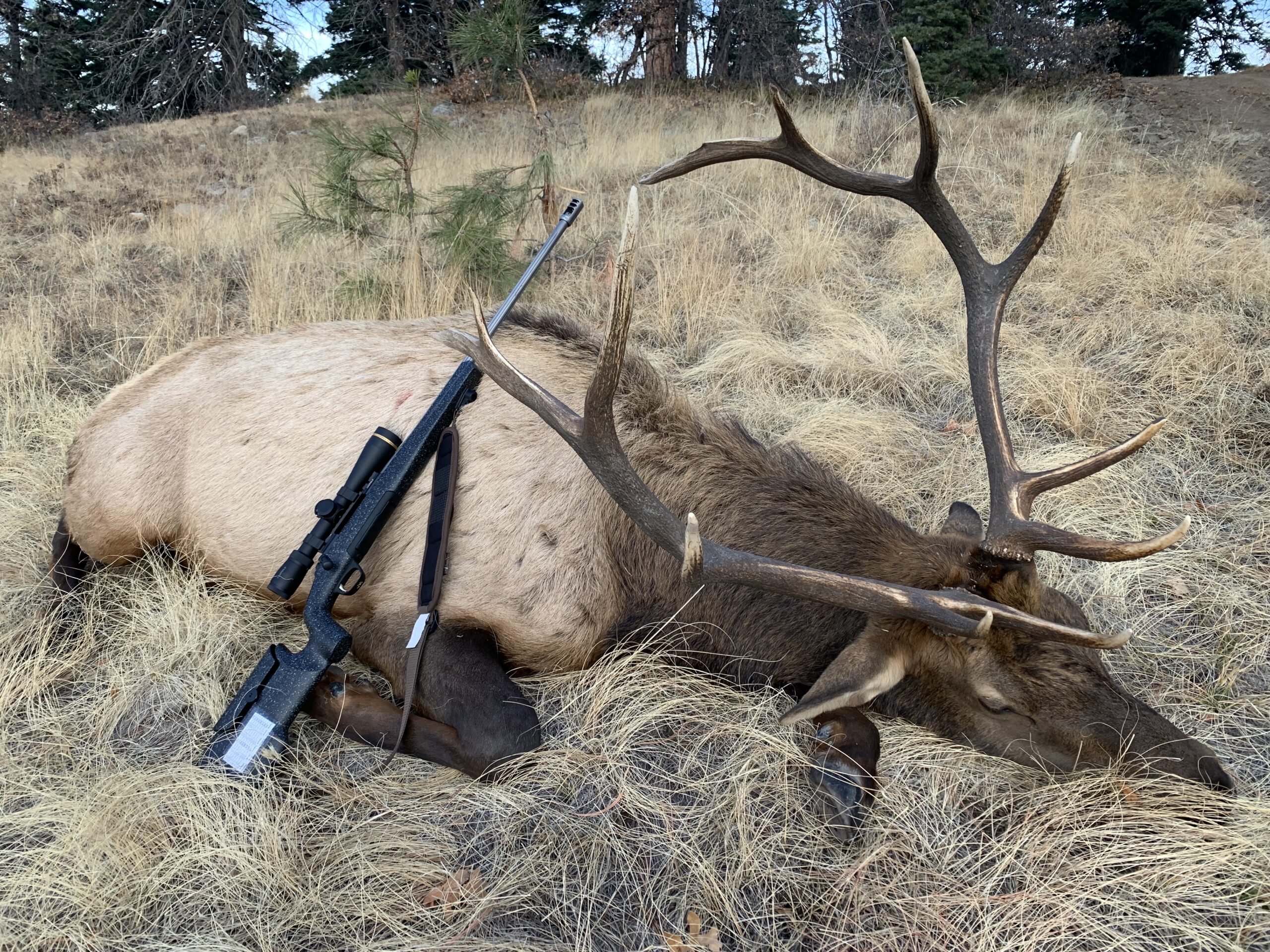
The Pros and Cons of Muzzle Brakes
The upside of muzzle brakes is obviously softened recoil and less muzzle jump, which can lead to more comfortable, consistent shooting, as well as making it easier to see your impact. The downside is the tremendous felt concussion and noise that is created by redirecting muzzle gasses to reduce the recoil. The concussion isn’t really noted by the shooter, but if you happen to be anywhere alongside and you’re not ready for it, the blast will ring your bell. Ear protection is critical at all times. Even with proper ear protection, the cumulative effect of thousands of concussive impacts can’t be healthy.
Pros
- Dramatically reduced recoil
- steadier sight picture after the shot
Cons
- Exponentially louder
- Requires hearing protection, even while hunting
- Guide or accompanying hunters must use ear pro too
- Concussion can negatively affect bystanders or spotters
Are Muzzle Brakes Worth it for Hunting?
Most of the time, I want nothing to do with muzzle brakes in a hunting scenario. I have been in several situations where another hunter or guided client had a brake and I was trying to film or spot his shot. Even while wearing hearing protection, the concussion jolted me at best, and at worst it has left my ears ringing for more than a day.
Muzzle brakes are fantastic at what they do, and being able to spot your own hits, or misses, on game is valuable, but is the cost worth it? The caveat with muzzle brakes is that unless you want to give yourself or your hunting partner permanent hearing damage, you must wear hearing protection for every single shot. We really should do our best to pop a set of plugs in before we shoot—with or without muzzle brakes. But sometimes shot opportunities happen quickly and there’s not time to throw on ear pro. However, with a brake, you don’t have an option. I simply don’t think a brake is worth it. A good suppressor is a much better all-around option.
For hunting purposes, I believe (perhaps stubbornly) that a person should hunt with a rifle they can handle and shoot well without a brake. That might mean swallowing a little pride and opting for a tamer cartridge like the .270 Winchester or 6.5 Creedmoor. But what about the big “brush rifles” you may ask? To me, a brush rifle is the gun I take into the brush to check bear baits and track hit bears. I see plenty of these rifles, like the Ruger Guide Gun, with brakes as standard fare. These rifles can hit hard on both ends, but I have no desire to incapacitate myself as well as the bear. Also, I need to be able to hear every crack or rustle in the underbrush while following up a bear.
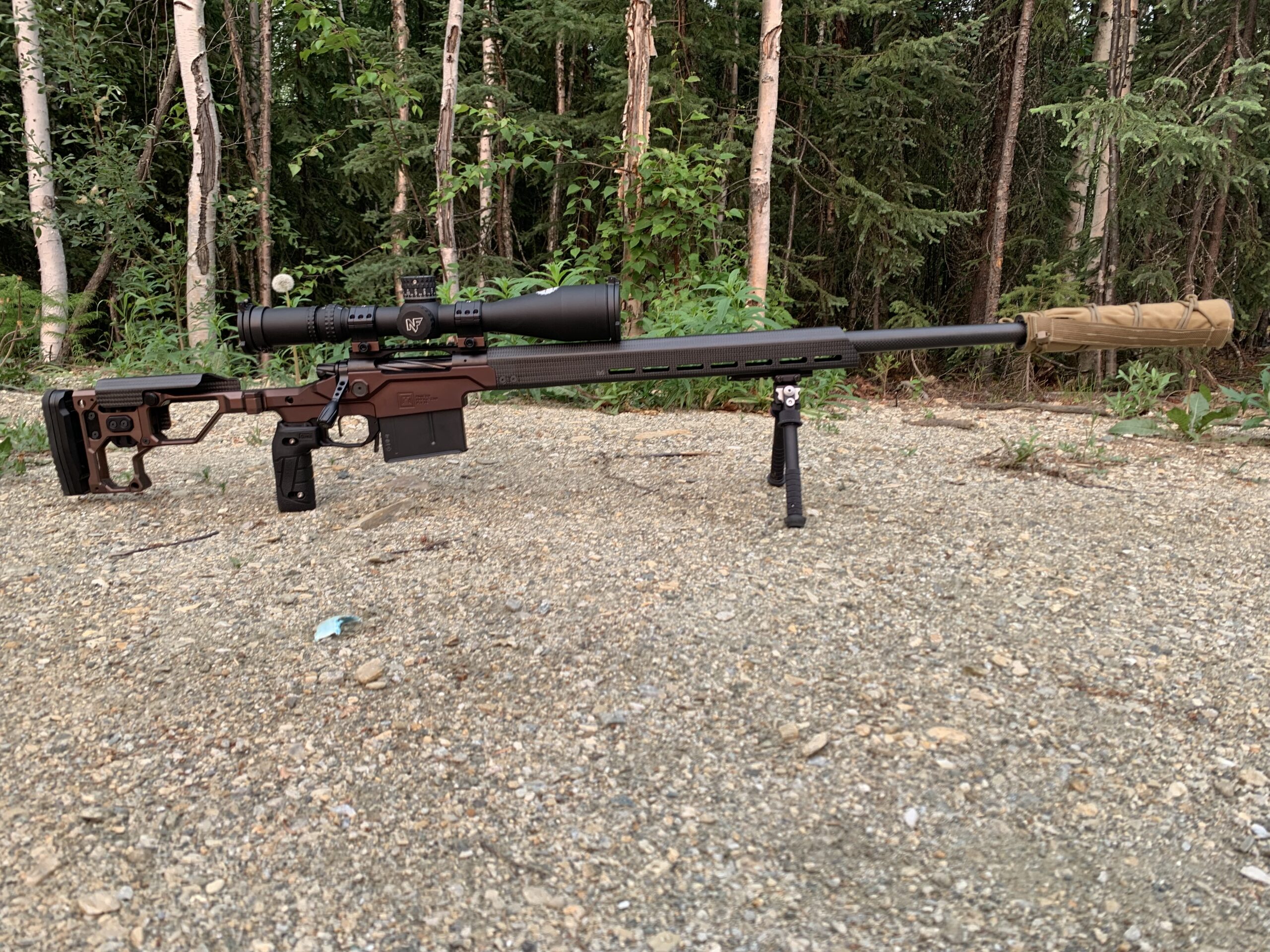
You Won’t Always Have Time to Use Ear Protection
All is well and good when you have time to pop your plugs in, but in some situations, you won’t. In the case of a real dangerous game charge, you won’t have time to hit pause while you roll your foamies between your fingers before letting them expand in your ear canal. Last year, I had to snap a quick shot in the timber at a grizzly that was closing in quick from 15 yards. In such close proximity to trees, the report of my .338 Win. Mag. left my ears ringing for half an hour. Had I been using the muzzle brake the rifle came with, results would have been nearly as bad for me as they were for the bear.
My opinion on muzzle brakes is just that—an opinion. They are a fantastic tool, allowing rifles to be chambered larger, yet stay reasonably lightweight and shootable. Using one simply makes it that much more important to be aware of who and what is around you. You must always, always use good hearing protection.

